I’ll be presenting multiple sessions at the SQLintersection Spring 2016 conference in Orlando, FL on April 16-22, 2016. This conference has an exclusive slate of top-tier speakers, with great content, and a nice, intimate atmosphere that lets attendees get more personal interaction with the speakers compared to most other SQL Server conferences.
Here are the sessions that I will be presenting:
Workshop Session
Analyzing and Improving I/O Subsystem Performance (All day workshop on Monday, April 18, 2016)
SQL Server is often I/O bound, but proving it to your storage or SAN administrator can be challenging! You will learn about the different types of storage that are available for SQL Server, and how to decide what type of storage to use for different SQL Server workload and file types. You will also learn useful tips and techniques for configuring your storage for the best performance and reliability for your workload. There will be extensive coverage on how to use disk benchmark tools like CrystalDiskMark 5.0 and Microsoft DiskSpd, so you can confidently understand the performance that your I/O subsystem can deliver. We’ll also cover methods to effectively measure and monitor your storage performance from an OS and SQL Server perspective so that you will have valuable information and evidence available the next time you have to discuss I/O performance with your storage administrator. You will also learn a number of valuable OS and SQL Server configuration settings that will help you get the best I/O performance possible from your storage subsystem.
Regular Sessions
Dr. DMV’s Troubleshooting Toolkit – Part 1
Dynamic Management Views and functions allow you to easily see exactly what is happening inside your SQL Server instances and databases with a high level of detail. You can discover your top wait types, most CPU intensive stored procedures, find missing indexes, and identify unused indexes, to name just a few examples. This session presents, demonstrates and explains a complete set of diagnostic DMV queries that you can easily use to detect and diagnose configuration and performance issues in your SQL Server instances and databases.
Dr. DMV’s Troubleshooting Toolkit – Part 2
A continuation of the first session!
Dynamic Management Views and functions allow you to easily see exactly what is happening inside your SQL Server instances and databases with a high level of detail. You can discover your top wait types, most CPU intensive stored procedures, find missing indexes, and identify unused indexes, to name just a few examples. This session presents, demonstrates and explains a complete set of diagnostic DMV queries that you can easily use to detect and diagnose configuration and performance issues in your SQL Server instances and databases.
Scaling SQL Server
SQL Server implementations can quickly evolve and become more complex, forcing DBAs and developers to think about how they can scale their solution quickly and effectively. Scaling up is relatively easy (but can be expensive), while scaling out requires significant engineering time and effort. If you suggest hardware upgrades you may be accused of simply “throwing hardware at the problem”, and if you try to scale out, you may be thwarted by a lack of development resources or 3rd party software restrictions. As your database server nears its load capacity, what can you do? This session gives you concrete, practical advice on how to deal with this situation. Starting with your present workload, configuration and hardware, we will explore how to find and alleviate bottlenecks, whether they are workload related, configuration related, or hardware related. Next, we will cover how you can decide whether you should scale up or scale out your data tier. Once that decision is made, you will learn how to scale up properly, with nearly zero down-time. If you decide to scale out, you will learn about practical, production-ready techniques such as vertical partitioning, horizontal partitioning, and data dependent routing. We will also cover how to use middle-tier caching and other application techniques to increase your overall scalability.
You can register for the conference and additional workshops here. If you register by March 1, 2016, you will get (depending on which package you sign up for), your choice of a Microsoft Band 2, a $200.00 hotel gift card, a Microsoft Surface 3, or a Microsoft XBOX One. You can also get a $50.00 discount on your registration if the use the discount code “Berry” when you sign up.
I think this will be a very useful and fun conference, and I hope to see you there!
